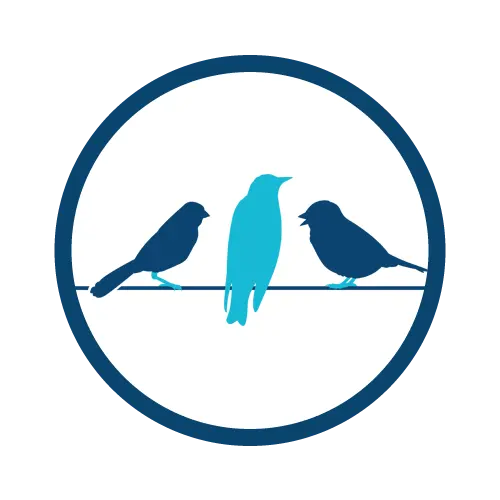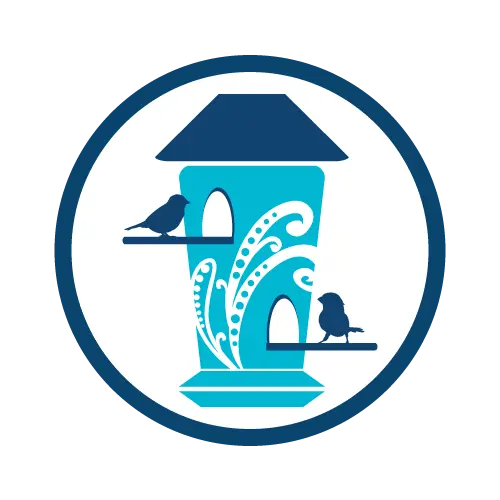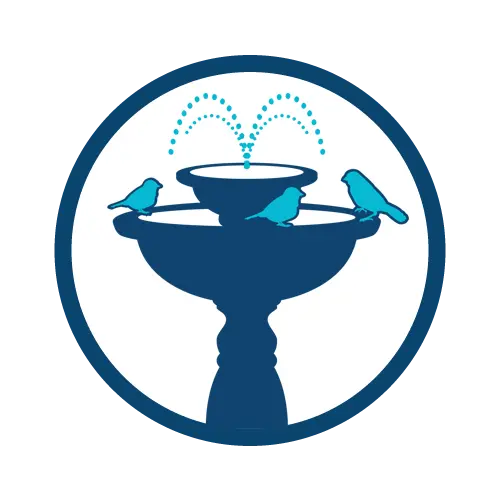Live out your French dream
Thinking about building a new nest in France but don’t know where to start? Is it even the right plan for you? This questionnaire can help you in your contemplation.
Already in France? So are we!
Whether you need bilingual assistance with administrative issues or a larger project, Renestance’s renesting experts can help you.
Check out our blog
We regularly post new articles about various subjects pertaining to living in France: finances, health, language.
Stay informed and get some insiders tips in the process!
Wherever you are in the process
Renestance has the savoir-faire and connections to help
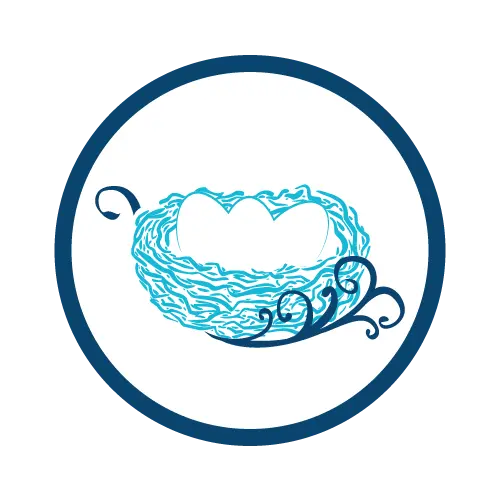
Dreaming
Wondering about moving to France?
We can provide tailored research and advice to help you determine whether your dream can turn into reality.
Start your journey with our Project Consultation!
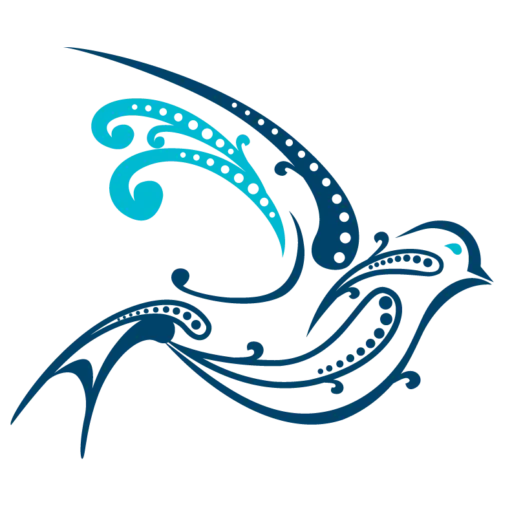
Planning the dream
You’ve decided to take the leap? We can help with your next steps, like fulfilling visa requirements and taking off with peace of mind. Book a Project Consultation if you already have your new nest in France – OR – book a Property & Relocation Consultation if you want to learn more about finding your new nest in France whether that be buying a property or renting (to get started or full time).
You can also benefit from personal consulting or liaison work on the ground in France with our Lifeline Support service for your various needs.
To get started on those services, contact us!
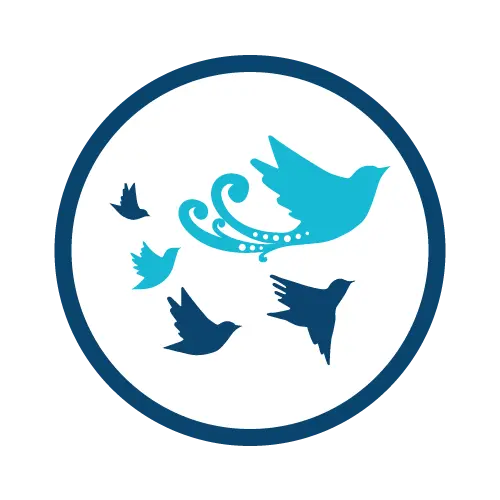
Living the dream
We can also assist with the famous French bureaucracy, whether you’re applying for a Carte Vitale, exchanging a driver’s license, or renewing your residency permit. Check out the Information and Assistance pages to see how we can help you.
Renestance can guide you
Need answers to your burning questions?
Renestance has done the digging and written up the answers for you. We regularly report on information that affects you – tips and tricks for daily life in France, health, housing, cultural events, expat life, legal/fiscal changes in France, learning French, etc.
Sit back and relax while the experienced Renestance team steps in. Get individual consulting or assistance with French administration anywhere in France. We can consult on a wide variety of subjects like making the move, cost of living, real estate, language learning, French culture, pursuing your passions, and making social connections.
What Happens After the New Wears Off?
You may be dreaming of moving to France, or you may have already jumped off the cliff. For Phil and me, the move has been surprisingly easy, in large part due to the assistance of Renestance. The same is true for most of our friends here, many of whom also used Renestance to help with the transition.
Winter Blues… In the South of France?!
Many people dream of moving to the south of France, envisioning bright blue skies, plenty of sunshine, and long days at the beach. And that is, in part, the reality of living here. But if you’re considering a move, or if you have already taken the plunge, you should know that there will be winter. There will be ugly days of wind, cold temperatures, cloudy skies, and rain.
Living in France: The Carte Vitale.
Living in France can seem to be all about cards: You need a carte grise for your car, a carte verte for your car insurance, a carte de séjour as a non-European resident… and a carte vitale.
The carte vitale is your personal, credit-card sized, electronic health insurance card for your medical coverage under the French national health care system.
It allows for direct transfer of electronic medical claims (feuilles de soins électroniques FSE) and reimbursement requests (demandes de remboursement électroniques DRE) to the portals of compulsory and supplemental health insurers. The offices dealing with healthcare claims and payments are called CPAM (caisse primaire d’assurance maladie), they are the primary health insurance fund in France.
The carte vitale usually contains the following information
– type, number, and issuance date of the card itself.
– your name(s), date of birth, address, social security number, and a color photograph.
– the name of your regular physician or “medecin traitant”, if you have chosen one.
– information regarding entitlements to benefits, cost exemptions and their validity period, if applicable.
– information on your private supplementary health insurance (mutuelle), if applicable.
– information on work-related illnesses or accidents, if applicable.
– contact details for persons you have named to be notified in the event of an emergency, if applicable.
– your instructions for organ donation in case of death.
If your dependents, children or spouse, are insured with you, their data will also be contained on your card.
The carte vitale does NOT contain information about the general situation of your health or your medical treatments.
By the way: the carte vitale can also be used as an ID card outside the healthcare sector, for example for identity checks by the police or as proof of identity when voting in political elections.
History of the carte vitale
The carte vitale was introduced as an electronic chip card in 1998 to allow a direct and automated settlement of costs with the healthcare branch of the social insurance system. It was meant to ensure faster processing of claims and payments as well as lower personnel costs for health insurance companies. In 2008 the carte vitale 2 with a picture of the card holder and other additional information was introduced.
How to get your carte vitale
The carte vitale is issued free of charge to any French citizen or legal resident over the age of 16. However, whereas French citizens receive their card automatically, foreign nationals must apply for it or otherwise be entered into the system.
You are eligible for a carte vitale if you have a visa allowing you to work in France or if you are residing in France on a legal and stable basis. If you work for a French employer, he or she will usually take care of your application. If you are self-employed, you are automatically entered into the French healthcare system at the time you register your business.
If you don’t work or are retired, you will be eligible for your carte vitale after three months of residence in France. You need to apply for your card by completing the Cerfa S1106 form, the “Demande d’ouverture des droits à l’assurance maladie” and sending it to your regional CPAM office, together with all required supporting documents.
The exact number and type of required supporting documents will vary according to your situation, but in most cases you will need your passport and birth certificate, proof of legal residency and of housing, as well as information on your French bank account. If you have children under 18, you will need to complete an additional form to add them to your coverage, providing their documents as well.
After you’ve applied for your carte vitale
After you’ve sent in your application, you will just need to wait. Processing times may vary. If you have not heard anything two months after you sent your application, contact your regional CPAM for an update. Be prepared to deal with requests for additional documents or even for documents you’ve already sent in. Sometimes files can get lost so it’s always a good idea to keep copies of everything and never, ever send original documents anywhere by mail.
Once your application has been accepted, you will receive a document confirming your healthcare rights called “Attestation d’ouverture de droits”. This document will contain your social security number or “numéro de sécurité sociale”. The letter will also include the form “Ma nouvelle carte vitale” with which you can apply for your physical card.
While you are waiting to receive the physical card, you can get your health expenses reimbursed by presenting the “attestation d’ouverture de droits”. You can now cancel the private health care insurance policy you had to have for your visa or turn it into a top-up health insurance, a “mutuelle”.
Note that to open your personal account on Ameli you will need to wait for the physical carte vitale, because you will need some of the additional numbers on it.
How to use your carte vitale
Billing for medical services
When using any medical services, you present your carte vitale to the service provider (doctor, pharmacist, hospital, etc.). They will read the card electronically and transmit information on the services provided to CPAM.
If you have private supplementary health insurance (“mutuelle”) and have made this information available to CPAM, the data is also automatically sent to your mutuelle. The costs are then reimbursed automatically, both for the part covered by CPAM and for the part covered by your mutuelle. This applies both to cases in which you pay the costs initially and are reimbursed afterwards (tiers garant) and to cases where the service provider is paid directly by the insurer(s) (tiers payant). Reimbursement from CPAM should usually take place within a week.
If you don’t have your carte vitale
If your card is lost, stolen, or defective, you can present a printed-out copy of your social security attestation (attestation de droits) in order to get medical services. This can serve as proof of insurance, but it does not enable automatic registration and forwarding of information to CPAM. In this case the service provider will complete a treatment confirmation (feuille de soins), which you will then send to CPAM (and your mutuelle) in order to be reimbursed.
Medical coverage when traveling
The carte vitale can only be used in France. If you want to travel to other European countries, you should request the “carte européenne d’assurance maladie” (CEAM), the European Health Insurance Card (EHIC). You will be sent a separate plastic card, valid for two years. Each beneficiary, including co-insured children, requires their own EHIC. If time is short, you can also download the EHIC as an attestation and print it out on paper.
—————————–
How we can help
In theory it is very easy to apply for healthcare coverage in France. In practice, depending on your affinity for French bureaucratic processes, the application may turn out to be a real pain. We offer a complete Healthcare Setup package where we help you put together your application pack including all necessary tasks and follow-ups until you receive your carte vitale in the mail.
If we are assisting you with a Micro Entreprise setup, healthcare coverage setup is also a part of that process. Contact us to find out how we can assist you.
—————————–
French healthcare glossary:
PUMA: protection universelle maladie.
Puma guarantees to any person working or regular, stable resident in France the right to be paid for his health costs throughout life.
CPAM: caisse primaire d’assurance maladie.
CPAM manages the rights of those entitled to social security benefits including healthcare, processes claims forms, developsprevention policies, and so on. CPAM has regional offices in each department and in the overseas territories.
Ameli: assurance maladie en ligne.
Ameli is the online platform for CPAM with a website and an app offering access to the French health insurance system and its services. Ameli allows you to check your reimbursements, edit your personal information, ask questions, report loss and reorder a carte vitale, apply for a European Health Insurance Card (EHIC) and more.
Helpful Links
Cerfa S1106 in French: “Demande d’ouverture des droits à l’assurance maladie”
or English: “Application for membership in the French health care system”
Information about CPAM and its offices in all departments.
Form to add children to your coverage in French: “Demande de rattachement des enfants mineurs”
or English: “Application to add minor children”
Renting in France: furnished or unfurnished?
When you move to France it may make a lot of sense to rent a house or apartment before buying a property. From the comfort of your rented accommodation you can take your time looking for the perfect property in the perfect location – without any pressure to find a “forever-home” quickly in order to fit your moving or visa application agenda. And you can try out living in an area before committing to buying a property there with all inherent consequences.
The French Rental Market
Unfortunately, renting in France is not always very easy. Depending on the town or area the French rental market can be extremely competitive. Lots of people may be applying for the same place and offers may be off the market almost as soon as they are published.
Even the French complain about the lack of available rentals and the difficulty of getting their applications accepted. Foreigners arriving in France without a steady job often find it even harder.
It is important to know all you can about how renting in France works because there are big differences to what you are used to from your home country.
One such difference is the division of rentals into two types: short-term furnished rentals (meublé) or long-term unfurnished rentals (non-meublé).
Furnished rentals (bail en location meublé)
A lease for a furnished rental or “bail meublé” is signed for a one-year period (don’t worry – this duration is only binding for the landlord, not the tenant) and must include the following furniture:
- Bed(s) with duvets or blankets and pillows
- Shutters or curtains in the bedrooms
- Hotplates
- Oven or microwave
- Fridge
- Freezer or freezer compartment of the refrigerator with a maximum temperature of -6 °
- Crockery in sufficient number for occupants to take meals
- Cooking utensils
- Table and seats
- Storage shelves
- Light fixtures
- Household maintenance equipment adapted to the characteristics of the accommodation (vacuum cleaner if there is carpet, broom and mop for tiling, etc.)
- A phone line.
This is the absolute minimum of furniture and equipment for a furnished rental. Some properties may provide significantly more than this, including washer, dryer, etc.
The big advantage of a furnished rental is that it gives you time to arrive and find your feet in a new town and actually enjoy the first few days instead of coordinating furniture purchasing and deliveries in a foreign language. But of course you may have to live with furniture that is not quite up to your tastes in design or comfort. Typically, there is only the bare minimum though which leaves lots of room for you to make your new home your own.
As stated above, the one-year duration only binds the property owner, and even at the end of the year, there are very few legitimate reasons they can ask you to leave. If they do not cancel the lease at least three months ahead of the end of the lease by registered letter or if they do not provide one of the accepted legal reasons, the lease is automatically renewed for the same period of one year.
As the tenant, you do not have to honor the full period of the lease. You need to give only one month’s notice by registered letter in order to get out of your rental contract. Make sure that your rental contract contains a clause for “bail mobilité”.
Unfurnished Rental (bail en location non-meublé/vide)
An unfurnished property or “bail non-meublé” is typically rented for a period of three years. These leases usually offer more tenant protection and flexibility to make changes than the one-year furnished lease.
In an unfurnished property, the owner is not obliged to provide any furniture or equipment. Some owners may provide a fitted kitchen but usually you will find neither a fitted kitchen (oven/stove, hob/cooktop, extractor, microwave, fridge, cupboards etc.) nor any other fixtures and fittings the way you would in other countries. A “kitchen” in the description means literally just the room for a kitchen, containing possibly a sink and maybe a hob/stove – if you’re lucky.
With an unfurnished rental you will therefore have to do a lot of furniture shopping. The advantage of this type of lease is, of course, that you get to really make the place your own without the expense and stress of buying an entire property. And of course, if you are planning to move or to buy later, you will have already purchased much of your furniture and can take everything with you.
With an unfurnished rental you must give one to three month’s notice by registered letter to break the lease, depending on the location (the exact condition will be in your contract). The property owner must give notice six months before the end of the lease and is held to the same limitations as for furnished rentals.
How we can help
What would be the best solution for you? Where do you find rentals? How do you prepare a dossier that will convince agencies or landlords? What do you have to look out for in a rental contract?
Renestance can advise you in all these questions and accompany you in your rental search from the first planning stages to the final walk-through and handover of the keys. We also have our own network of agency partners and landlords willing to rent to foreigners.
Contact us for an initial project consultation on your moving and housing plans or for more information about our rental search service.
Photo: R ARCHITECTURE / Unsplash
Moving to France: Legal and fiscal residency – what’s the difference?
In France, fiscal residency and legal residency are two distinctly different concepts for purposes related to taxation and legal rights. Here is an explanation of the key differences:
French Fiscal Residency
Fiscal residency refers to an individual’s tax status in France. It is mainly used for taxation purposes, and it determines which country’s tax laws apply to an individual’s income and assets.
In France, you will be considered a fiscal resident under any one of the following conditions:
- You have your primary residence in France, meaning you spend more than 6 months a year in France or you spend more time in France per year than in any other country.
- You have your main professional activity in France.
- Your spouse and children reside in France.
- The center of your economic interests* is in France.
* (What are “economic interests”? In the determination of French fiscal residency, the “center of economic interests” is a crucial criterion. It considers various ties to France, like investments, economic activities, family connections, and financial relationships. If this “center of economic interests” is deemed to be in France, an individual is considered a fiscal resident and taxed on global income. It is a subjective evaluation based on multiple factors, not just one. Seek advice from tax professionals or French authorities if your fiscal residency isn’t clear-cut based on primary residence or professional activity.)
Once you are considered a fiscal resident in France, you are subject to filing a French tax return on your worldwide income, which includes income earned both within and outside of France. This status also affects various other tax obligations.
French Legal Residency
Legal residency, also known as “domicile” or “residence” for legal purposes, is primarily related to an individual’s legal status and rights within the country. It is important for matters concerning immigration, social security, social services, healthcare, education, and other legal entitlements of French residents.
To be considered legally resident in France, you typically need to have a residence permit, such as a long-stay visa or a residence card (“titre de séjour”), authorizing you to reside in the country.
Summary
It is essential to understand that while there is a significant overlap between fiscal and legal residency, they are very distinct concepts. You can be legally resident in France without being fiscally resident, and vice versa. For instance, some individuals might have a legal right to reside in France but may not meet the criteria for fiscal residency because they do not meet the tax-related criteria listed above.
Determining your fiscal and legal residency status in France is important, as it affects tax obligations, social benefits, and legal rights. It is advisable to consult with tax professionals or legal experts when dealing with these matters, especially if you are a foreign national living in France under complex circumstances.
How we can help:
Your Renestance consultant can connect you with trusted accountants, financial advisors, or immigration lawyers with lots of experience in advising foreigners in France. Recommendations may be made during your project consultation or when unexpected complexities appear, for example during a residency assistance or micro entreprise setup project.
Retiring in France: A Personal View.
Whether you already live in France when you reach retirement age or whether you move here after you’ve retired – France has a lot to offer for seniors. Our marvelous client Linda is a senior citizen herself and lives in La Rochelle – she shares some of her personal experiences and tips for aging well in France:
I came to France at the age of 70, having long dreamed of living here. Given my age, I had some concerns about things like housing options for seniors, affordable health care, and getting around. Would this really be the right place to spend the rest of my life? With the help and encouragement of Dennelle at Renestance, I took the plunge and I have no regrets.
Being retired in France has worked out much better than I could have imagined. The cost of senior living here is significantly lower than it is on the Central Coast of California. I pay much less for groceries, healthcare is ridiculously cheap and, best of all, I find the French to be extremely warm, kind, and welcoming.
I also disagree with statements that the bureaucracy is terrible here. To me, the French simply like to plan and provide for every possible eventuality.
Does all this mean that I did not experience any “culture shock” or period of adjustment? Of course not, but I love it here in France and cannot imagine living anyplace else. I just received my ten-year residence card and I plan to live here for the rest of my life.
All that said, here are some things I’ve learned that may be useful to other people who wonder what aging and being a senior is like in France.
Housing and Accommodations for Seniors
When I first moved to France, I lived in an apartment in Sète that I had bought. After a couple of years I decided that those hot summers in Sète just weren’t for me. I moved to the town of La Rochelle on the Atlantic coast, where I live in a senior residence.
I decided on that option knowing that I would eventually need to be in a place where I could get some assistance. That has worked out very well – especially during the Covid pandemic, when getting around by bus just wasn’t a good option. In this senior residence I can be as independent as I want, knowing help is available if and when I need it.
There are different kinds of senior accommodation in France. There are “Résidences Services Seniors” for seniors who can live independently (I live in one of those) and EHPADs (“Établissements d’Hébergement pour Personnes Âgées Dépendantes”) for seniors who cannot reasonably live on their own and need medical help. Both types of accommodation for seniors have their distinct variations and it’s important to investigate the specific offerings of any that are of interest.
For instance, although my résidence services seniors is theoretically for independent seniors, it actually provides a combination of independent living and assisted living. This is accomplished through contracting and paying for extra services as one ages and needs more help.
The basic services included in the monthly rent include handling of mail and packages, maintenance of common areas, occasional entertainment events and outings (such as trips to the market), a couple of regular classes, and daily lunch as well as a telealarm service which consists of a bracelet and pendant with emergency call buttons. Through WIFI connection to a special telephone, emergency help can be summoned, 24/7, with just the push of a button.
Various other services are provided “à la carte” at extra cost. I do my own housework and ordinarily require no special assistance. The only extra services I use are transport (staff members drive me to and from appointments) and arrangements for getting necessary preventative care (flu shots and covid vaccinations). My best friend here, who is in her late Eighties, pays for extra help from the residence itself (housekeeping, grocery shopping, laundry) and from outside providers (daily assistance bathing, and dressing). Most of her needs for help can be met in this way, but when she hurt her leg and needed extra medical care and therapy, she could not stay here, and had to reside for several months in a rehabilitation center (“centre de rééducation” ) while she recovered.
Other outside services that I find helpful are the ability to shop from home, and the availability of home hairdressing services. You can buy pretty much anything online and have it delivered. Here in La Rochelle, there are five grocery chains that offer home delivery. I also use the services of a “Coiffeuse a domicile”. All the usual hair salon services are available.
It is advisable to carefully and thoroughly research the quality and services of any facility by visiting and looking at its reviews before signing a contract. However it is always possible to move to another residence if things should change – I am currently on a list for another residence and expect to move next year.
Public Transport in France
Getting around in France is ridiculously easy for seniors, so long as you don’t live in an out-of-the-way place or a very small community. The public transportation services in many cities are outstanding. I cannot specifically speak for other communities of course, but here in La Rochelle, the local public transport provider “Yelo” is fantastic. The buses run on time, and the transport center is staffed with very helpful people. “Yelo” also offers a special service for people with mobility problems. It costs the same as a regular bus ride, but transport is provided door to door in a special van that can handle wheelchairs. To qualify, you have to provide the specified proof of reduced mobility.
I also occasionally use a VTC (“vehicule touriste avec chauffeur”) locally, which is a bit expensive, but reliable. Getting taxis in France is not always easy as some drivers don’t want to make trips they consider to be too short to be worth their while.
To travel further I take the train. The efficiency and reliability of the French train system is legendary. Of special interest to seniors is “Accès Plus”, the special services of SNCF (“Société Nationale des Chemins de Fer Français”) for those with reduced mobility. The basic service of “Accès” Plus is free.
I have used this service myself and it’s wonderful if you have to navigate one of the really big railroad stations. You check in when you begin your journey and a nice person with a wheelchair takes you to your train, sees that you get to your seat, and stows your luggage. Other persons meet you at any interim transfer points and at your final destination.
SNCF also provides a “Home + Train Service” for those who may need extra help getting to their destinations.
One caveat with French train travel is the same for everyone regardless of age: One does have to be prepared for the regular strikes that temporarily disrupt service. They are usually announced beforehand in the news and there is a website (unfortunately only in French) where one can look up planned strikes.
Healthcare in France
I find the French healthcare system to be radically better than the one in the United States. It is far more efficient and exponentially less expensive.
From a senior’s point of view, there are some particular features worth noting:
Visiting nurses are a fixture at the senior residence where I live. There is no need to go to a medical facility to get blood drawn, injections administered, your blood pressure checked, and other basic medical services. The staff of this residence regularly goes to the nearby pharmacy to pick up prescriptions and vaccines. I have them pick up my flu vaccine every year. I store it in the refrigerator until the visiting nurse comes to give me the shot. I show her my medical system card (“Carte Vitale”) and the card for my “Mutuelle” (top-up-insurance), and that’s it.
Many doctors will make house calls, and the emergency service “SOS Médecins” can send a doctor to your home in case of emergency 24/7. I cannot speak to its availability in very small or isolated communities, but it is available in most of France. If you call France’s health emergency number 15, the operator may send an ambulance or may connect you with an SOS médecin. I have not used this service myself, but have been told that the service can generally have a doctor at your residence within an hour.
Dental care is also very good and notably cheaper than that provided in the United States. Depending on where you live and if you need an English-speaking dentist, it can take a while (up to several months) to get an appointment for a regular exam and cleaning, but it’s pretty easy to get an emergency appointment.
Eyeglasses are the one exception to the rule that medical care is cheaper here. I find that the prices are about the same as they are in the U.S. The eye exam is much less expensive, but if you want anything other than a very basic pair of glasses in cheap, low-quality plastic frames, be prepared to pay a lot for them. I recently paid about 300€ for two pairs of glasses in nice (but not really “designer”-style) frames.
The challenges
Yes, there are actually a couple of downsides for some seniors living in France.
Mobility Challenges
If you have a mobility challenge (I have a bad knee), it’s important to be aware of a couple of things. The sidewalks in many cities are often not in great condition, with cracks and holes and dips. For some reason, the French go to great lengths to provide wonderful bike lanes and paths, but seem to forget about pedestrians.
The other issue I have encountered is stairways. Many buildings do not have elevators. Some types of buildings are legally required to have elevators, but owners often manage to get exceptions. Only last year the railroad station here in La Rochelle put in an elevator so that it is now fully accessible for people with reduced mobility. Previously, “Accès Plus” helpers had to wheel people across the actual working railroad tracks (after communicating with someone in the tower to make sure that no trains were coming). That was okay in nice weather, but not so good in winter. This condition still exists in other railroad stations in the country.
Estate Planning
One final (literally) thing to consider if you are thinking of retiring in France is estate planning. If you have family in your country of origin, you will likely need two wills – one for that country and one for France, and they need to work together. I used the services of both a lawyer and a notaire to write and finalize my wills. We arranged for the notaire to keep the original wills in his office safe (a standard practice). The wills are added to a national database, and can be located by any notaire when they are needed.
Be aware that inheritance taxes can be very high in France. If you are a French resident, you – or rather your descendants – have to pay, regardless of your citizenship in an another country.
Rural living
If you are interested in spending your later years in France, research your prospective location and its infrastructure and services thoroughly. Those romantic little isolated villages may be charming, but how easy is it to get the services that you may need? Will you be able to find a doctor or a dentist locally? How far is it to the nearest hospital of reasonable size? What kinds of public transport are available?
For instance I was looking at a senior residence on Île de Ré, but there is just a very small sort-of-hospital there and the long bridge to the mainland is packed during tourist season. In a real emergency, a person might not get to the big hospital in La Rochelle in time – unless a helicopter is used.
Cultural Differences
There are many, many differences between French and American cultures and behaviors – too many to enumerate them all. Also these differences may be experienced differently depending on where you come from in the US, where you live in France, and how integrated you are in your French community.
I will simply advise the following:
– do not to expect people to behave as you are used to from the US.
– do not take things personally that are most likely not meant personally.
– read books like “The Bonjour Effect”.
– try to learn at least a little French – it will go a long way.
– always, always say “Bonjour!” before you say anything else.
To sum it up:
After more than six years of living France, I think moving here is the best decision I ever made and would not ever consider returning to the United States. I only wish I could have done it sooner!
Useful Links
Pour les Personnes Agées
A French government website covering all aspects of living in France as a senior:
https://www.pour-les-personnes-agees.gouv.fr/
Directory of Information Points
A French government website with directories for various senior services. The directory of information points specifically lists all information points in all départments and communes. Here trained staff can help with and answer any questions about aging and maintaining your independence in France. They can help finding solutions for home help services, home health care services, necessary home alterations, moving into a residential home, getting access to financial aid etc.. Just enter your postcode to see the listings in your area:
https://www.pour-les-personnes-agees.gouv.fr/annuaire-points-dinformation-et-plateformes-de-repit
EHPAD
The French government offers a great website in English with detailed information about EHPADS:
https://www.service-public.fr/particuliers/vosdroits/F763?lang=en
SNCF Accès Plus and other services
https://www.sncf-voyageurs.com/en/travel-with-us/plan-your-journey/accessibility/special-assistance/acces-plus/
https://www.sncf-voyageurs.com/en/travel-with-us/before-after-station/luggage-service/
Planning for Strikes
https://www.cestlagreve.fr/
SOS Medecins
https://sosmedecins-france.fr/
Picture: Rafael Garcin / Unsplash

